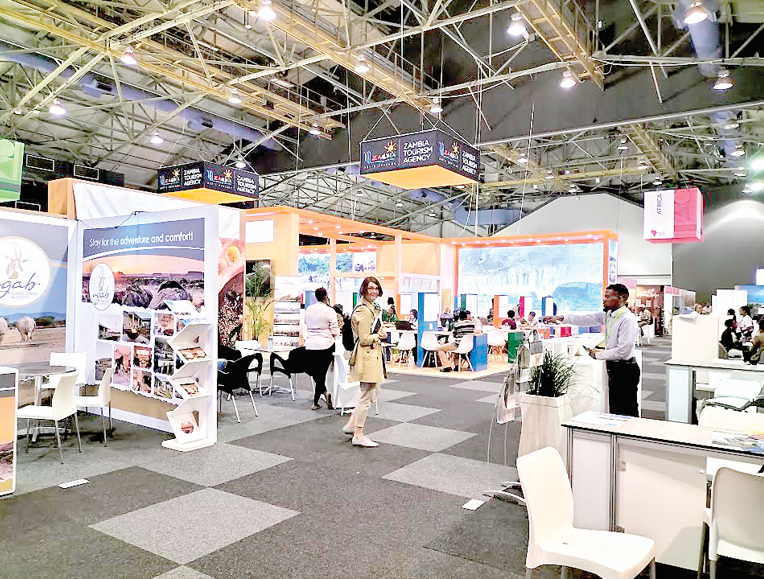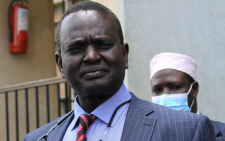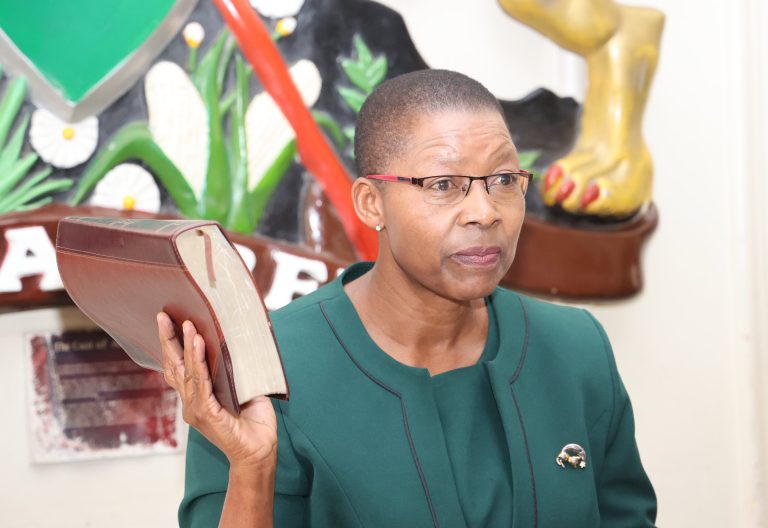Tourism players scramble for platinum expos

With the many international tourism expos coming up, a rising number of Kenyans with businesses in the tourism industry have been up and about securing spots to participate in the trade fairs.
Experts argue that tourism trade shows and exhibitions offer an excellent opportunity for a business to generate leads, nurture business relationships, gain new customers and when it comes to destinations, it is an excellent opportunity for branding.
Muthoni Gathitu of Think Travels has been to a number of tourism expos both within and outside Africa. As a travel agent, she believes that she has greatly benefited from the expos that she has attended so far as it has assisted her in networking, getting updated in industry trends as well as adding into her company’s product portfolio.
“I have also gotten business partners who have sent clients over to me after the expos. I invest in expos because it’s a sure way of getting into a space where you can create good business to business relationships with other agents, experience a destination and also get first hand rates and offers from most suppliers,” she says.
She maximises on expos by being intentional about who she desires to meet with and uses the opportunities to network during the sessions.
“There are also farm trips and this strengthens any connections already formed. Scheduling meetings with exhibitors always helps to use time wisely during these expos,” she continues.
For Andrew Kitema and his travel partner Martin Tobiko both representing Africa Adventure Specialists, a premier destination management company in East Africa, they carefully select international and African expos to attend to boost their business. One of the expos that they have consistently attended is the Africa’s Travel Indaba in Durban South Africa.
“We have attended the expo since 2018. Marketing is like the pulse of every individual. If you don’t invest in marketing then you don’t expect to have returns. This drives us to invest more in marketing and doing the expos makes us meet more agents booking with us and more clients visiting Kenya or East Africa with us,” explains Anthony.
Boost economy
Anthony adds that such expos also increase their company’s brand visibility across the world as more people get to know the kind of services that they offer, especially in East Africa.
For 33 years, Alex Millar public relations and marketing manager at Governors Camp in Masai Mara National Reserve has attended expos, one of them being the Africa’s Travel Indaba.
“It’s fantastic for our business since people all over the world from as far as Australia and South America come to the expo with big support from American operators and the UK, which is our biggest market as well. Of course we attend the Magical Kenya expo as well, but it’s not on the same scale as this one. Our goal is to market our properties to tour operators and marketing agencies from all over the world,” she notes.
Expos too are also great for destinations as they boost the economy and increase employment opportunities.
For instance, the Africa’s Travel Indaba, which contributes significantly to the Durban Gross Domestic Product estimated at about Sh989.5 million, hotel and non-hotel occupancy at 80 per cent, and actual spending amounting to Sh593 million, resulting in the creation of 250 job opportunities. Premium international tourism trade shows and exhibitions can be pricey for small businesses that are juststarting out.
A three-day World Travel Market event in London, for example, has the minimum starting size of a nine square metres booth, which is three metres by three metres costs a tidy sum of Sh595,000. If you combine with return air tickets, meals, visas, accommodation, local transport and other incidental expenses, adds up to the additional costs.
To ease such costs, tourism players use associations or sometimes tourism boards of their respectful countries with a big budget on marketing. Normally, tourism boards book spaces averaging 200 to 400 square metres in size depending on the number of sharing exhibitors. For instance, in this year’s recent African Travel Indaba, The Department of Tourism in South Africa supported 123 local small inbound tourism enterprises through its Market Access Support Programme (MASP) to showcase their products and services at the Hidden Gems pavilion during Africa’s Travel Indaba. “The total value of support approved for the 123 enterprises amounts to Sh89 million (R11.7 million) and this investment will enable these small businesses to display their unique products and services, expand their networks, and foster partnerships that will drive the growth and sustainability of the tourism industry in South Africa,” said the Minister of Tourism, Patricia De Lille at the Opening of Africa’s Travel Indaba 2023. Such support is what the tourism players who attend such premium tourism expos desire to have as such events not only support their businesses, but also market the destination. In a recent notification, the Kenya Tourism Board announced that that this year’s Magical Travel Expo would not be taking place. Instead, they will host the third edition of the East African Regional Tourism Expo. While the industry has been represented in international trade fairs, most stakeholders believe that some of the African trade fairs are equally important to tap into the regional market and promote collaboration in the continent.
Support to cut costs
“We are lucky that we are actually part of the Wilderness Safaris, so we are part of their stand, but others without such an umbrella cannot afford to be part of such a big event and it’s a lost opportunity for sure,” adds Alex.
For Andrew, being under tourism associations, such as the African Travel and Tourism Association (ATTA) where he is a board member has helped him benefit in cost cutting when it comes to attending such premium expos. “When you are working with umbrella bodies, you get to know what is happening across the globe and you have information on a daily basis. With ATTA, we get to pay a smaller fee than we would have done if we had come as individual entities. There are shows that we go on our own, such as Fitur, the global meeting point for tourism professionals and the leading trade fair for inbound and outbound markets in Latin America, and it turns out to be very expensive,” he explains.
Andrew adds that the government should pump in more money into marketing and incentivise the lodges, Destination Management Companies (DMCs), and other exhibitors who would want to showcase their products to the world.
“We are not saying that the government should come in and pay for the premium shows, but if the government could incentivise them, it would bring more people to our destination, and the government will earn more money,” he observes.
Alex believes that having tourism boards participate in such events markets Kenya as a top destination, particularly at key premium expos in Africa.
“We need to have a country umbrella consolidating and marketing the destination as a whole. We lose out if Kenya is not here,” she adds.
Vikram Khetery corporate general manager at Tribe Hotel believes that the solution is in empowering counties to work with the private sector in marketing Kenya in such prestigious expos. “We will never have enough money to sell Kenya, but if we empower counties to sell themselves then we will progress. Private players in the counties will work with them to make sure that they have the right infrastructure,” he says in conclusion.












